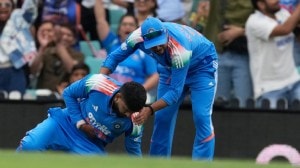Aiyar to explore interaction for $4.3 bn gas pipeline
In trying to push the $4.3 billion Iran-Pakistan-India gas pipeline project during his upcoming visit to Islamabad, Petroleum Minister Mani ...

In trying to push the $4.3 billion Iran-Pakistan-India gas pipeline project during his upcoming visit to Islamabad, Petroleum Minister Mani Shankar Aiyar will explore the possibility of having a three-way interaction between the particpant countries. This could start at the official-level with the objective of a tripartite oil ministers meet over the next couple of months.
This is important because it will start the process of negotiations for a trilateral over-arching agreement between the three countries. It’s understood that once in place, the agreement would form the basis for jointly commissioning a feasibility study. Without such an agreement, the parameters for such a study cannot be laid out.
Currently, India has been holding techno-commercial talks on the project with Iran given that it treats it as a project where its commercial understanding will be the source country. Three meetings have so far been held. However, no parallel meeting has been held between Iran and Pakistan. New Delhi will look to get a sense on how Pakistan proposes to move forward given that US concerns over any project that will have substantial commerical benefits to Iran.
The way India views the project translates into a buyer-seller arrangement between New Delhi and Teheran, which in turn reaches an understanding with Islamabad. Yet, an over-arching agreement between the three governments will be necessary and a steering committee will have to be set up soon to guide the project forward.
Going by the Turkmenistan-Afghanistan-Pakistan (TAP) gas pipeline agreement — which is believed to be the model being followed now — an agreement at the highest level will have to be reached first. The agreement for the TAP project was signed in 2002 paving the way for a feasibility study.
Such a study will then look into the commercial and technical aspects of the project, the kind of gas to be delivered, pricing issues, security guarantees and other international best practices that would have to be followed in a project of this scale.
Indian requirement is that of lean gas and it would need about 60 million cubic metres a day. While LPG reserves for up to two weeks can be kept aside, New Delhi will want security assurances given the nature of India-Pakistan relationship.
Aiyar will hold talks with his Pakistani counterpart Amanullah Khan Jadoon during his visit starting June 4, and is also expected to meet Pakistan President Pervez Musharraf and Pakistan Prime Minister Shaukat Aziz.
While Washington has flagged its concerns over the project, New Delhi knows that Turkey, Britain, The Netherlands and Japan, invested into Iran’s hydrocarbon sector after the 1996 Iran and Libya Sanctions Act (also called the Kennedy D’Amato Act) came into force. None of them attracted any US sanctions.
Also, the European Union had successfully complained to the panel established under the dispute resolution mechanism of WTO in 1997 to escape US sanctions targetting Cuba. US legislation on Iran has been challenged by EU and Canada and even Teheran as an ‘‘inadmissible intervention in its internal and external affairs’’.





- 01
- 02
- 03
- 04
- 05

























